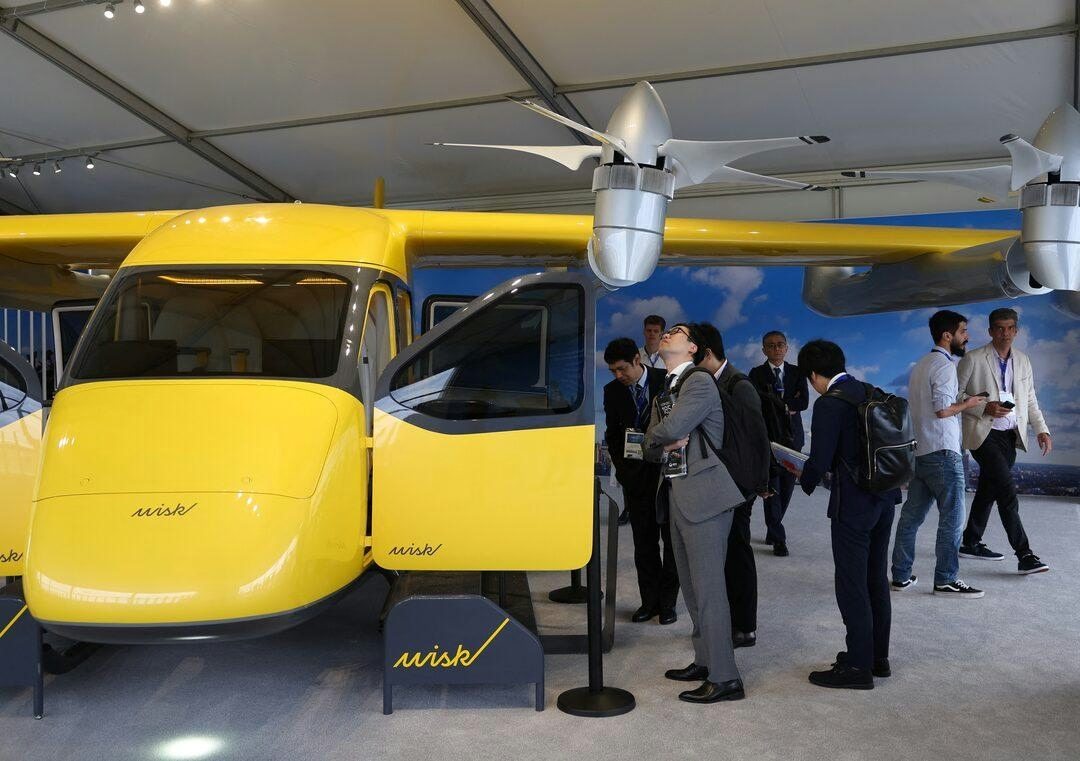AeroGenie — Ваш интеллектуальный второй пилот.
В тренде
Categories
Boeing’s Wisk Aero plans autonomous air taxi service in US cities by 2030

Boeing’s Wisk Aero Plans Autonomous Air Taxi Service in US Cities by 2030
Wisk Aero, Boeing’s air taxi subsidiary, has announced ambitious plans to launch autonomous commercial flights in major US cities, including Houston, Los Angeles, and Miami, by 2030. J.C. Asencio, the company’s head of partnerships and emerging markets, revealed that the expansion will also extend internationally to cities such as Brisbane, Australia, and Kaga, Japan, with Miami recently added to the list. Wisk’s approach distinguishes itself from competitors by deploying fully autonomous aircraft, unlike other companies whose electric vertical takeoff and landing (eVTOL) vehicles are piloted.
Advancing Autonomous Flight Amid Industry Challenges
Wisk’s latest four-seat air taxi model operates without onboard flight controls or a pilot, reflecting the company’s commitment to autonomy. Asencio highlighted the shortage of qualified pilots and maintenance personnel as a driving factor behind this strategy. He noted that commercial airliners already depend heavily on autopilot and sophisticated navigation systems during flights, underscoring Wisk’s focus on achieving the highest safety standards. The company plans to operate its air taxis exclusively in favorable weather conditions, with ground-based supervisors ready to intervene if necessary.
Founded in 2010 as Zee Aero and later merged with Kitty Hawk—a startup supported by Google co-founder Larry Page—Wisk was acquired by Boeing in 2023. The company now employs approximately 800 people, including many Boeing staff members. Unlike Boeing’s traditional business model of selling aircraft to airlines, Wisk intends to both manufacture its autonomous air taxis and operate its own commercial service.
Currently, Wisk is developing its sixth-generation air taxi, with efforts concentrated on flight testing and securing certification from the Federal Aviation Administration (FAA) in the coming years. The company has been working closely with the FAA through tabletop exercises designed to simulate air traffic control scenarios and various operational conditions, reflecting the complexity of integrating autonomous vehicles into urban airspace.
Integrating Urban Air Mobility and Overcoming Obstacles
Wisk envisions a future of urban air mobility characterized by frequent flights navigating congested city skies, a scenario that may necessitate more advanced and digitized air traffic control systems. The company is also exploring multimodal partnerships to integrate its air taxis with existing public transportation networks, aiming to offer seamless door-to-door travel solutions.
In South Florida, Wisk has formalized agreements with the Miami-Dade Aviation Department and the University of Miami’s Engineering Autonomy Mobility Initiative. These collaborations are intended to identify potential vertiport locations at Miami International Airport and support research into advanced air mobility technologies, operational frameworks, and regulatory compliance.
Despite the company’s ambitious timeline, significant challenges remain. Regulatory approval processes, safety concerns, and the development of necessary infrastructure pose substantial hurdles. Market reactions to Wisk’s plans have been mixed; while there is enthusiasm about the potential of autonomous air taxis, skepticism persists due to historical difficulties with autonomous vehicle technologies. The competitive landscape is intensifying, with rivals such as Joby Aviation forging strategic partnerships and Eve Air Mobility announcing plans to commence operations in Costa Rica.
As Wisk advances its vision, its success will hinge on effectively navigating regulatory complexities, maintaining rigorous safety standards, and establishing the infrastructure required to support a new era of urban air travel.

Capital A Completes Sale of Aviation Business to AirAsia X

Four Gateway Towns to Lake Clark National Park

PRM Assist Secures €500,000 in Funding

Should Travelers Pay More for Human Support When Plans Go Wrong?

InterGlobe Aviation Shares Rise 4.3% Following January Portfolio Rebalancing

Key Market Segments Shaping Airline Route Profitability Software

Locatory.com Gains Traction Among Aviation MROs and Suppliers

JetBlue Flight Makes Emergency Landing Following Engine Failure

58 Pilots Graduate from Ethiopian University

The Engine Behind Boeing’s Latest Widebody Aircraft
